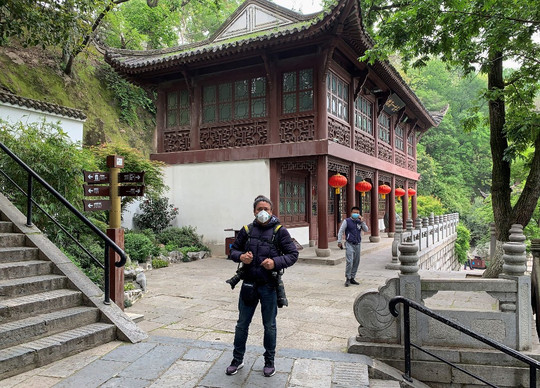International Federation of Journalists (IFJ) Deputy General Secretary, Jeremy Dear, participated in the webinar Virus on Freedom of Expression, hosted by the FreeWord Committee of Human Rights Solidarity.
In his keynote speech, he pointed out that the pandemic has increased existing attacks against press freedom across the world. He said that global attacks on press freedom are not the result of the pandemic but that authoritarian regimes have used it as "a smokescreen" to further crackdown on press freedom. "They say the measures are temporary but all too often they become permanent", he said. He highlighted an increase in arrests, intimidation, fake news laws and economic pressures around the world, all of which were undermining independent journalism.
The webinar featured eleven speakers, including correspondents, editors, representatives of human rights and journalists' organizations, and a former MEP. Participants claimed increasingly authoritarian leaders in Russia, China and Turkey have used the pandemic to increase the trend to intimidate journalists and silence critical reporting.
Before the pandemic, China and Turkey had the highest numbers of imprisoned journalists worldwide, while censorship and threats to some independent journalists have characterized the Russian media landscape.
China has sent journalists into forced quarantine, made media outlets take down articles, expelled foreign journalists and intimidated Chinese nationals not to speak to international media. Megha Rajagopalan, who worked as a correspondent for BuzzFeed News in China, pointed out that the intimidation of sources is a "very serious issue" because foreign nationals depend on locals' information.
In Turkey, the Turkish journalist union (TGS) reported that 85 journalists are currently imprisoned and face a serious risk of a Covid-19 infection in overcrowded prisons. Direct censorship, intimidation and forced media closures further impede quality reporting on the pandemic.
In Russia, journalists have been arrested for covering the government's handling of the pandemic. Digital censorship and intimidation campaigns against journalists have also increased in recent months.
Not only do authoritarian leaders threaten media freedom using the excuse of the pandemic, but they also do it at a point in time when quality information can save lives. Jeremy Dear emphasized that it is vital for people to access information about health risks, treatments and precautions.
The IFJ has repeatedly exposed Covid-19 related actions which threaten media freedom and launched the Global Platform for Quality Journalism, with long-term solutions to protect media, save jobs and support the most precarious media workers.

